new posts in all blogs
Viewing: Blog Posts Tagged with: ya historical fiction, Most Recent at Top [Help]
Results 1 - 25 of 154
How to use this Page
You are viewing the most recent posts tagged with the words: ya historical fiction in the JacketFlap blog reader. What is a tag? Think of a tag as a keyword or category label. Tags can both help you find posts on JacketFlap.com as well as provide an easy way for you to "remember" and classify posts for later recall. Try adding a tag yourself by clicking "Add a tag" below a post's header. Scroll down through the list of Recent Posts in the left column and click on a post title that sounds interesting. You can view all posts from a specific blog by clicking the Blog name in the right column, or you can click a 'More Posts from this Blog' link in any individual post.

By:
Becky Laney,
on 8/6/2015
Blog:
Becky's Book Reviews
(
Login to Add to MyJacketFlap)
JacketFlap tags:
YA Fiction,
YA Historical Fiction,
Scholastic,
YA Romance,
review copy,
YA Historical,
2015,
2015 Cybils-eligible,
books reviewed in 2015,
Add a tag
A Little In Love. Susan Fletcher. 2015. Scholastic. 288 pages. [Source: Review copy]
I'm dying. There's no use hoping I'll live or telling myself, Keep going, it's only a small wound. There's too much blood on the ground. I'm going to die in this street.Eponine has always been one of my favorite characters from Les Miserables. I've always felt sympathy for her. And so I was quite excited to see that Susan Fletcher has written Eponine's story in her novel, A Little In Love.
Is an understanding--an appreciation, a love--for the novel Les Miserables a must for picking this one up? I wouldn't say it's a must. I wouldn't want to limit the audience for this one. Certainly this book will mean more to the reader who has at least watched one of the movie adaptations (though I'm not sure all movie adaptations even have Eponine's character? I do not care for the musical, for the most part,
but this song gets me every time.*) But the most enthusiastic fan may just be the reader who has read Victor Hugo's Les Miserables--and unabridged at that! But any reader who is drawn to historical fiction set in nineteenth century France will find this of interest.
The framework of this one does make sense. I'm not always a big fan of stories told within a framework. But it is wisely done in this one. The narrator--Eponine herself--is not being melodramatic. She is, in fact, dying. And in a way, the whole book is a flashback showing us moments in her life that have led up to this moment--this heroic, tragic, bittersweet moment. This adaptation does not change the ultimate outcome.
Is it faithful to Victor Hugo's novel? Yes, for the most part. I do think a few details are changed along the way. And I do think plenty has been added, filled out, if you will. The characters we meet in A Little in Love are fleshed out.
So did I like it? love it? I really enjoyed it. It is one I read all at once--like a treat. I admit that I'm probably the ideal reader for this one since Les Miserables is one of my most favorite, favorite books of all time.
My 2014 review.
My 2013 review.
*I think I fell in love with this song a full decade before ever picking up the novel. Why? Well, it's one that skaters really, really, really LOVE to skate to.
© 2015 Becky Laney of
Becky's Book Reviews

By:
Becky Laney,
on 7/22/2015
Blog:
Becky's Book Reviews
(
Login to Add to MyJacketFlap)
JacketFlap tags:
Scholastic,
2011,
review copy,
war,
YA Fiction,
YA Historical Fiction,
World War II,
YA realistic fiction,
YA Historical,
books reviewed in 2015,
Add a tag
Phantoms in the Snow. Kathleen Benner Duble. 2011. Scholastic. 240 pages. [Source: Review copy]
Phantoms in the Snow was a great book set during World War II. Noah, the hero, is a young man who has just lost both parents to small pox. His only living relative is an uncle that he's never met, or can't remember meeting. He's a soldier in the army, a "Phantom" part of a skiing unit. Now Noah was raised by pacifists, and, until their death he's never really thought about how he personally feels about war, and if he should be a part of it or not. He's sent to live with his uncle at a mountain camp, army camp. Once there, his uncle signs him up and lies about his age. Noah begins his training. He first has to learn to ski. He already knows how to shoot. But there's so much about army life that he doesn't know at least not yet. Noah remains conflicted through much of the book. About who he is and what he believes and where he really belongs. He learns a lot about life and about how you should never make assumptions about where another person is coming from, and what life is like for others. Anyway, it's a very strong coming-of-age story. It's a story with a lot of heart, I might add. I cared about Noah. I cared about his uncle. And I cared about a character called Skeeter. Overall, this one is oh-so-easy to recommend.
© 2015 Becky Laney of
Becky's Book Reviews
Lion Heart (Scarlet #3). A.C. Gaughen. 2015. Bloomsbury. 352 pages. [Source: Review copy]
I read Scarlet and Lady Thief last spring. It was LOVE. I've been waiting for Lion Heart since I finished Lady Thief last spring. I've held the characters close for a whole year in anticipation. I just have to say that I was not disappointed with Lion Heart at all.
If you're looking for a good--a great--retelling of Robin Hood, then you must pick up these three books. They're wonderful. Yes, they build upon the legend, and, a few details will feel familiar to readers--as they perhaps should. But the depth and complexity to the characters is remarkable. I loved, loved, loved getting to know all the characters. Especially Robin Hood and Scarlet (Marian). There are plenty of other characters to love as well. Though perhaps a fewer number in Lion Heart. (I'd forgotten just how Lady Thief ended. So rereading it and rushing into Lion Heart, I felt the loss of a certain character very much.) Still, there are plenty of new characters to get to know in Lion Heart.
Lion Heart definitely has a different feel to it in a way. But I still loved it. Much is required of Scarlet in this one, and, she'll continue to fight for what's right and what's good from cover to cover. I love that she never gives up. I love her determination and fierceness.
© 2015 Becky Laney of
Becky's Book Reviews

By:
Becky Laney,
on 4/26/2015
Blog:
Becky's Book Reviews
(
Login to Add to MyJacketFlap)
JacketFlap tags:
books reviewed in 2015,
books reread in 2015,
YA Fiction,
YA Historical Fiction,
YA Fantasy,
YA Romance,
2012,
Walker Books,
Bloomsbury USA,
review copy,
Add a tag
Scarlet. A.C. Gaughen. 2012. Walker. 292 pages. [Source: Library]
I first read Scarlet
last year. I really enjoyed it, but, not as much as I ended up enjoying the second book in the series, Lady Thief.
So. Scarlet is a retelling of Robin Hood. The narrator is "Will Scarlet" a young woman posing as one of Robin's men. All of the gang know her secret, though they didn't all learn at once. But most of the villagers don't. Scarlet is a thief with a past, a past that will catch up with her by the end of the novel. Through Scarlet's perspective, readers get to know Rob (Robin Hood), John Little, Much, and Tuck. Readers also get to know about the dangerous and cruel Guy Gisbourne. He's been hired to find Robin Hood and his gang and kill them...
How did I feel about Scarlet the second time I read it? I enjoyed it so much more! I think one of the reasons I love rereading is because I can relax and enjoy how everything comes together. The first time I was focused on the potential of the premise, on the mystery--who was this Scarlet?--and on the action--will The Hood and his gang be able to save everyone?! The second time I was able to focus on the development of characters and relationships. I already had a connection with the characters, a LOVE for them, so that helped this reading experience tremendously.
I'll be rereading Lady Thief before I read the third in the series, Lion Heart, which releases in May.
© 2015 Becky Laney of
Becky's Book Reviews
Death Coming Up The Hill. Chris Crowe. 2014. HMH. 208 pages. [Source: Review copy]
At first I was skeptical about Death Coming Up the Hill. A whole verse novel written in haiku?! I struggle with liking verse novels in general. When I do, it is more often an exception than the norm. Why haiku? Why a verse novel? But after reading the author's note, I was a bit more forgiving and appreciative. He shares why he chose to write in haiku. He says he tried writing the story in prose, he tried different things here and there. He liked the characters. He liked the story. But the words, they were stuck. When he tried writing in verse, in haiku, things became unstuck. Furthermore, the number of syllables in Death Coming Up the Hill matches precisely the number of American soldiers killed in Vietnam in 1968. So the author's note did explain the why. That being said, I haven't changed my mind about verse novels.
Death Coming Up the Hill is a coming-of-age love story set in 1968. Ashe is the protagonist. 1968 will bring him joy and sorrow. I'll start with the joy: the new girl in school, Angela Turner, will become his girl; they'll fall madly in love. She will support him. He will support her. Together they have something solid. A further joy, of sorts, is Ashe will get a baby sister, Rosa. Now for the sorrow, Rosa is not his father's child. His mom has had an affair. His parents will split up, and Ashe's family life will go from uncomfortable to unbearable. Plus, there's general angst. Angst about the war in Vietnam. Angst at home in the U.S. His father is at one extreme, his mother at the other. Ashe is growing up and deciding who he is, what he believes, what he wants and needs, what he's willing to do or not do.
As a coming of age novel, it works. As a love story, it works. So in many ways this one works. I personally don't think it's great in terms of poetry and language. But I will be the first to admit that I don't read much poetry, and, that poetry in general is subjective enough to begin with. Do I think that the novel resonates with emotion? Yes. But I don't think it resonates with emotion because of the poetry.
© 2014 Becky Laney of
Becky's Book Reviews
The Right Fight. Chris Lynch. 2014. Scholastic. 192 pages. [Source: Library]
I enjoyed Chris Lynch's The Right Fight. Roman, the protagonist, loves, loves, LOVES baseball. But he loves his country even more. That is why he enlisted even before America entered the war--the second world war. The book chronicles his early experiences in the war as a tank driver. Readers see him through training, war games, and going overseas, his various assignments and missions. (Most of the book sees him in North Africa). Readers experience it from his point of view and from a few letters as well. One sees how his fellow soldiers--the men in his tank specifically--form a family. One also sees the many (often-ugly) sides of war.
I enjoyed this one. I thought there was a good balance of action (war) and characterization. I liked getting to know Roman, his fiancee, his war buddies. © 2014 Becky Laney of
Becky's Book Reviews

By:
Becky Laney,
on 9/2/2014
Blog:
Becky's Book Reviews
(
Login to Add to MyJacketFlap)
JacketFlap tags:
YA Fiction,
YA Historical Fiction,
World War II,
YA Romance,
2014,
Houghton Mifflin Harcourt,
review copy,
YA Historical,
books reviewed in 2014,
Add a tag
Love by the Morning Star. Laura L. Sullivan. 2014. Houghton Mifflin Harcourt. 320 pages. [Source: Review copy]
I was disappointed by Laura Sullivan's Love by the Morning Star. I wanted to love it. I did. It is a novel set in English countryside in 1938-1939. It offers an upstairs/downstairs view of life. Or supposedly so. Two young women come to Starkers. One is a gold digger spy. Her father is a Nazi-sympathizer to say the least and his gang (for lack of a better word) wants her in position at this estate. She's told she'll be a maid. The other young woman is a Jewish refugee. She is actually a relation of the family who owns the estate. She's coming to Starkers to stay with her aunt and uncle. One girl is Hannah. The other girl is Anna. One will be treated well. The other won't.
In case you haven't guessed it, mistaken identity is the name of the game. These two women also happen to fall in love with the same man.
Why was I disappointed? Well. I'm not sure if it's because of the setting or the tone. I think I might have tolerated the tone--the silliness, the lightness, the double entendres, etc. if it wasn't set during such a dark time. It's hard to make light of the Nazis gaining power and destroying the lives of the Jewish people. The subject is serious and it deserves better. If it had been set twenty-five or thirty years earlier, then, perhaps it would have worked for me.
The romance. I liked the secret meetings between the hero and the heroine. There were only a handful of these scenes, but, they kept me reading.
I just have to add that I HATED one of the characters. I disliked a few more as well. But there was one that stood out above the rest as being AWFUL.
© 2014 Becky Laney of
Becky's Book Reviews
The Book Thief. Markus Zusak. 2006. Random House. 560 pages. [Source: Book I Bought]
First the colors. Then the humans. That’s usually how I see things. Or at least, how I try. HERE IS A SMALL FACT You are going to die. I am in all truthfulness attempting to be cheerful about this whole topic, though most people find themselves hindered in believing me, no matter my protestations. Please, trust me. I most definitely can be cheerful. I can be amiable. Agreeable. Affable. And that’s only the A’s. Just don’t ask me to be nice. Nice has nothing to do with me. REACTION TO THE AFOREMENTIONED FACT Does this worry you? I urge you—don’t be afraid. I’m nothing if not fair. —Of course, an introduction. A beginning. Where are my manners? I could introduce myself properly, but it’s not really necessary. You will know me well enough and soon enough, depending on a diverse range of variables. It suffices to say that at some point in time, I will be standing over you, as genially as possible. Your soul will be in my arms. A color will be perched on my shoulder. I will carry you gently away. At that moment, you will be lying there (I rarely find people standing up). You will be caked in your own body. There might be a discovery; a scream will dribble down the air. The only sound I’ll hear after that will be my own breathing, and the sound of the smell, of my footsteps. The question is, what color will everything be at that moment when I come for you? What will the sky be saying? Personally, I like a chocolate-colored sky. Dark, dark chocolate. People say it suits me. I do, however, try to enjoy every color I see—the whole spectrum. A billion or so flavors, none of them quite the same, and a sky to slowly suck on. It takes the edge off the stress. It helps me relax. The Book Thief is one of those books that I've read again and again and again. I reviewed it in
2007,
2008, and
2012. I started the year knowing that I would have to include it among my rereads. It's just a great book, a great book that is not diminished by rereading. It stays compelling and beautiful. It was also recently filmed. I wanted to read the book around the same time I watched the movie.
I watched the movie before rereading The Book Thief. If I'd never read the Book Thief, I would not have felt right seeing the movie first. This worked well for me. I think it worked to the movie's benefit in fact. I was able to become absorbed in the story and the characters. I wasn't comparing every second of the movie to every word in the book. I wasn't seeing the movie within the framework of
what has been left out and
what has been changed. Watching the movie, I was reminded of why I love the characters I love, reminded of why they are so memorable to me. They are just as memorable to me as say Anne, Marilla, Matthew, and Gilbert. The Book Thief was a book that deserved a film of equal quality to be made, and, I think it was done beautifully. That doesn't mean that everything in the movie was in the book or that everything in the book was in the movie. One thing I did notice after reading the book was the fact that Hans did not take the accordion with him into the shelter raids. (Though it did make a great movie moment.)
I loved rereading The Book Thief. It is always an experience. I don't think I can improve upon my last review:
The Book Thief leaves me speechless. If humans leave Death, the narrator, feeling haunted, I can say the same of the narrator. Could a book have a better narrator? I doubt it. There is something so perfectly-perfectly-perfect about The Book Thief. It is beautiful and brilliant; absorbing and compelling. It goes ugly places, to be sure, but the language, the style, just can't be beat. I mean this is a novel that wows and amazes. The characters are so real, so vivid. I mean these characters are very real, very human, very flawed, but the connection is so intense.I don't love it because it's an easy read. I don't love it because it's a happy, happy novel. I love it because it is beautiful, haunting, ugly, yet hopeful.
Favorite quotes:
Yes, often, I am reminded of her, and in one of my vast array of pockets, I have kept her story to retell. It is one of the small legion I carry, each one extraordinary in its own right. Each one an attempt—an immense leap of an attempt—to prove to me that you, and your human existence, are worth it. Here it is. One of a handful. The Book Thief. If you feel like it, come with me. I will tell you a story. I’ll show you something.
Yes, an illustrious career. I should hasten to admit, however, that there was a considerable hiatus between the first stolen book and the second. Another noteworthy point is that the first was stolen from snow and the second from fire. Not to omit that others were also given to her. All told, she owned fourteen books, but she saw her story as being made up predominantly of ten of them. Of those ten, six were stolen, one showed up at the kitchen table, two were made for her by a hidden Jew, and one was delivered by a soft, yellow-dressed afternoon.
When she came to write her story, she would wonder exactly when the books and the words started to mean not just something, but everything. Was it when she first set eyes on the room with shelves and shelves of them? Or when Max Vandenburg arrived on Himmel Street carrying handfuls of suffering and Hitler’s Mein Kampf? Was it reading in the shelters? The last parade to Dachau? Was it The Word Shaker? Perhaps there would never be a precise answer as to when and where it occurred. In any case, that’s getting ahead of myself. Before we make it to any of that, we first need to tour Liesel Meminger’s beginnings on Himmel Street...
To most people, Hans Hubermann was barely visible. An un-special person. Certainly, his painting skills were excellent. His musical ability was better than average. Somehow, though, and I’m sure you’ve met people like this, he was able to appear as merely part of the background, even if he was standing at the front of a line. He was always just there. Not noticeable. Not important or particularly valuable. The frustration of that appearance, as you can imagine, was its complete misleadence, let’s say. There most definitely was value in him, and it did not go unnoticed by Liesel Meminger. (The human child—so much cannier at times than the stupefyingly ponderous adult.)
A DEFINITION NOT FOUND IN THE DICTIONARY Not leaving: an act of trust and love, often deciphered by children
Insane or not, Rudy was always destined to be Liesel’s best friend. A snowball in the face is surely the perfect beginning to a lasting friendship.
I guess humans like to watch a little destruction. Sand castles, houses of cards, that’s where they begin. Their great skill is their capacity to escalate.
A SMALL BUT NOTE WORTHY NOTE I’ve seen so many young men over the years who think they’re running at other young men. They are not. They’re running at me.
On the ration cards of Nazi Germany, there was no listing for punishment, but everyone had to take their turn. For some it was death in a foreign country during the war. For others it was poverty and guilt when the war was over, when six million discoveries were made throughout Europe.
For some reason, dying men always ask questions they know the answer to. Perhaps it’s so they can die being right.
© 2014 Becky Laney of
Becky's Book Reviews

By:
Becky Laney,
on 7/22/2014
Blog:
Becky's Book Reviews
(
Login to Add to MyJacketFlap)
JacketFlap tags:
war,
YA Fiction,
YA Historical Fiction,
World War II,
YA realistic fiction,
World War I,
2014,
Second Story Press,
YA Historical,
books reviewed in 2014,
Add a tag
Soldier Doll. Jennifer Gold. 2014. Second Story Press. 256 pages. [Source: Review copy]
Soldier Doll is a message-driven novel with an interesting premise. Towards the end of World War I (1918), Margaret Merriweather, an English woman, gives her fiance a wooden doll. This is a doll that her own father made for her when she's a child. She paints a soldier's uniform on him. She gives him as a good luck charm, a way he can carry her with him wherever he goes. After he dies, Margaret is inspired to write a poem. This poem becomes famous. The doll itself is gone forever. Or so everyone thought. Soldier Doll follows the adventures of this wooden soldier with the baby-face. The framework for all the stories is his being discovered in Toronto in 2007 by a teen girl, Elizabeth. Elizabeth is buying her dad a DOLL for his birthday. Her dad is a soldier preparing to go to Afghanistan. A moping Elizabeth ventures into a used bookstore and discovers the poem-book by Merriweather. She's convinced she's found THE DOLL from the poem. She and her Dad team up to see if this is so... (view spoiler)
The chapters alternate between the 2007 story and the doll's adventures in the past beginning with World War I. The doll also heads to other wars: World War II, Vietnam, and the Iraq War. His ownership is passed along many times. I should clarify that readers don't get the perspective of the doll at any time. It remains just an object. What readers do get are glimpses of various soldiers from various countries. It captures scenes from life on the front.
War. War. War. That is the focus of Soldier Doll. Why do nations go to war? Why do men go to war? What is the point of it all? Those are the questions asked openly and honestly in Jennifer Gold's Soldier Doll. It is an anti-war novel, as you might imagine.
I found the 2007 story to be awkward. I found the past stories to be much better. The past sections were written in past tense. The 2007 story was written in very awkward present tense. It was third person present.
© 2014 Becky Laney of
Becky's Book Reviews
The Year We Were Famous. Carole Estby Dagg. 2011. Houghton Mifflin Harcourt. 256 pages. [Source: Review copy]
I definitely liked Carole Estby Dagg's The Year We Were Famous. This is historical fiction based on a true story, a true family story. It is fiction; liberties have been taken. Liberties that work in favor of a not-so-bleak ending.
Clara Estby is the heroine of The Year We Were Famous. She is the oldest daughter; she is seventeen. The family farm is in big, big trouble. Her mother, Helga, who suffers--and suffers understandably--from depression, works with her daughter to brainstorm a way to "save" the farm. Her daughter's careless comment about wanting to travel the world and be a journalist sparks an idea that can't be swept aside. Helga is determined to find sponsors, wealthy sponsors who want to test what women are capable of. She wants to make a deal. She and her daughter will walk across country, over three thousand miles, starting with no more than $5, if they reach New York City by the deadline, they will receive $10,000--more than enough to keep the farm. This is where the details are a bit fuzzy in reality because the journals and such were purposefully destroyed by the family. No one is sure *who* the sponsor was, if there even was a sponsor, the intentions of the sponsor, etc.
For over seven months May through December, these two women are on their own and on an adventure of sorts. It is dangerous and exhausting and overwhelming and a once in a lifetime opportunity. They meet new people almost every single day. They are sharing their stories with various newspapers across the country. They are speaking at suffragette events across the country. They are challenging themselves day and night...
I liked this one. It is set in 1896. I appreciated the fact that the author was inspired by her family history.
© 2014 Becky Laney of
Becky's Book Reviews
Between Two Worlds. Katherine Kirkpatrick. 2014. Random House. 304 pages. [Source: Review copy]
Between Two Worlds was an interesting and thoughtful novel. The novel is set in Greenland at the turn of the twentieth century. It is told from the native perspective, a young woman named Eqariusaq, nicknamed Billy Bah by Robert E. Peary's wife and daughter. The novel explores the tension between the heroine's "two worlds." On the one hand, as a child, she went with Peary and lived with his family for about a year in the United States. Several years later, her parents also traveled with Peary. But they never returned, along with the other natives Peary had selected. Those natives did not have the personal connection, the friendship. These men and women were to be studied by a museum. Between Two Worlds tells young readers of their fate and treatment--or mistreatment as the case may be. Readers learn alongside the main character. On the other hand, her home is her HOME. Spending time with white people (qallunaat) did not change who she was, did not change her way of life, her culture, her beliefs. She did not trade in her spirituality, for example, for that of the white men. Since her time with Peary's family, she has grown up and gotten married. She's still super young for marriage by today's standards, but today's standards just don't apply to ANY part of this novel.
One of the novel's greatest strengths, perhaps, is that it presents the facts with little or no judgment at all. How husbands and wives treated one another, how women fit into the community and village life, it's something that modern readers will question perhaps. Especially in terms of how husbands traded their wives amongst themselves in addition to trading them to the white men. Part of a woman's value was the value she could bring her husband. A wife's body could be sold or traded. Eqariusaq's husband, Angulluk, loved to trade his wife alot, especially to the white men. He loved how he could use his wife to obtain guns and bullets and planks of wood. I should also point out that men and women could decide to separate or "divorce." Marriage did not mean forever. Women could decide to discard one man in favor of another, in favor of a better. Billy Bah takes comfort in that fact as she seriously considers leaving her husband; she has little respect for him since he's lazy and greedy.
Between Two Worlds is a contemplative novel. Our heroine is very much torn in what she wants and what she needs. She is questioning her past, her present, and her future. Her memories of the past are bitter and sweet. There are memories she cherishes, for better or worse, but she's more analytical than she was as a child. There were things that happened to her in America that through her innocence she did not see as damaging or painful, but, upon growing up and growing wise, she realizes things aren't that simple. For example, she has happy memories of Peary's wife and daughter. Seriously happy memories. Yet, as an adult, as she meets them again after years apart, she realizes the complexity of the situation. Mrs. Peary is willing to risk the lives of the natives without a thought, without a thank you. She commands and expects obedience. She simply does not see the natives as being equally human, equally of worth.
I thought it was a compelling read. It presents a whole other world to readers.
© 2014 Becky Laney of
Becky's Book Reviews

By:
Becky Laney,
on 5/27/2014
Blog:
Becky's Book Reviews
(
Login to Add to MyJacketFlap)
JacketFlap tags:
Historical Fiction,
adult fiction,
YA Fiction,
YA Historical Fiction,
World War II,
Scholastic,
2014,
review copy,
YA Historical,
books reviewed in 2014,
Add a tag
By My Side. Sue Reid. 2014. Scholastic. 176 pages. [Source: Review copy]
I definitely enjoyed reading Sue Reid's novel By My Side. This novel is told entirely through diary entries; it is set in the Netherlands during World War II during Nazi Occupation. The heroine of By My Side, Katrien, falls in love with a Jewish boy, Jan. Katrien, unlike some of her friends, is not boy crazy. She wasn't looking for a boyfriend; she wasn't planning on falling in love. But there was something different about Jan, setting him apart from other boys she knew. He was slightly older, true, but that wasn't really it. One thing she does learn early on, however, is the fact that he's Jewish. That is why he stopped attending school. That is why he's sometimes a bit hesitant to do the things she wants. At the very, very beginning, she does seem a bit oblivious and insensitive. Her intentions were always good, mind you, but she didn't stop to think about how his being Jewish could effect WHAT they do together: going to the park, going to the movies, etc. She'd never had reason really to stop and think about how many restrictions are placed on the Jews and the seriousness of the situation. Of course, after seeing him a few weeks, she's grown up quite a bit. That doesn't mean Katrien is mature and wise, mind you. She decides to keep Jan a complete secret from her parents; he wants her to be honest, he wants to come to her house as her boyfriend. She is reluctant.
I definitely enjoyed this romance. It was a quick read. By the end, it had gotten quite intense as well.
© 2014 Becky Laney of
Becky's Book Reviews
The Winter Pony. Ian Lawrence. 2011. Random House. 256 pages. [Source: Review copy]
By the time I was halfway through The Winter Pony, I knew I had made a mistake, a big mistake. It isn't just that all the animals die, the ponies, the dogs, and lots of other Antarctic animals that were killed for food or fur, or both. It isn't just the fact that almost all the human characters die too.
I think it's the fact, and this is purely subjective on my part, that it was all so pointless. What could possibly be heroic or noble about starving to death and/or freezing to death? For what did these men risk their lives? For the glory of man? For pride? The men had a choice. They, for whatever reason, were excited and motivated and aware of the risks and hardships. The animals, well, they had no choice at any point. The animals were essentially doomed from the moment they were selected to be a part of Robert Falcon Scott's quest, his mission, to be the first to the South Pole.
Why am I focusing on the animals instead of the men? For the simple fact that this book does. The Winter Pony is told through a pony's perspective. The pony hero is James Pigg. The novel opens with James Pigg free and running wild, happy and innocent. It ends with him being shot and fed to the remaining dogs and men. (The men, the dogs, the ponies, all shared the same fate, it was just a matter of when.)
The author seems to like and respect Robert Scott, and has sought to tell the story honestly for better or worse. He does point out that big mistakes were made by Scott on his journey, that the story could have had a different ending, if Scott had made different choices, better choices. One of the mistakes is that Scott failed to push the ponies hard enough at the beginning. He had planned to create a supply cache, "One Ton Depot" at a certain degree, he stopped short of his goal for the sake of the ponies. On his return journey, he never came close to reaching the much-needed supplies that would have saved his life and the lives of his men. If he had stuck to the original plan, then he would have reached his supplies. There were other mistakes made as well.
There was nothing in Ian Lawrence's novel that made me like or respect Scott.
The Winter Pony stays relatively close to the facts. James Pigg's part in the story is stretched and expanded to tell more of what it was like to be one of twenty (or is nineteen?) ponies on the expedition.
The narrative switches between the pony's perspective AND an omniscient narrator that shares plenty of information.
© 2014 Becky Laney of
Becky's Book Reviews
Love Me. (Starstruck #2). Rachel Shukert. 2014. Random House. 336 pages. [Source: Review copy]
Love Me is the sequel to Rachel Shukert's
Starstruck. I enjoyed Starstruck. I am not sure if I enjoyed Love Me as much. On the one hand, I could not put it down. I kept cheating. I would go to the end of the book, read a bit, and then go back to where I was. I don't ever really do that. So it did keep my interest, which, I suppose, is a good thing, right?! My favorite character is NOT a main character.
On the other hand, I found myself yelling at the characters from start to finish. I also found myself frustrated at times with the dialogue and the writing. Little things like name-dropping all the big, big stars and how they all were
desperately mad to interact with these fictional characters. There were things that were just impossible to take seriously.
Love Me is definitely "darker" and messier than Starstruck. Every single character falls or fails in this one. Amanda, it turns out, had not reached her low point in Starstruck, far from it. And Gabby, well, I'm not sure Gabby makes even one good choice in this second novel. It's not that she doesn't try, it's just that her trying is hindered by her addictions. Margo's expectations are so out of control. After making one movie, she wants validation that she's the center of the universe. It doesn't happen. She whines and nags all the time. Readers, like Dane, may find themselves tuning her out.
The content of Love Me is definitely more adult than in Starstruck.
The men of Love Me:
Harry. Leftover from book one. Is there anything he does in this novel that does not make me angry?! I do NOT care for him at all. I HATE him.
Eddie. A musician. A band leader. Hints of trouble. I didn't mind him as much as Harry, because, at least he was honest about who he was and where he came from and what he was looking for. There is something refreshing about what you see is what you get.
Dexter. Another jazz musician. Not really seen as a love interest, but, an interesting guy I'd be curious to see again in a sequel if the author chooses to follow up with this character. I liked his scenes a good bit.
Dane. What can I say?! It has to be frustrating to be forced into a serious relationship with Margo. So I don't fault him for finding her annoying and frustrating and not who he hoped her to be. He wanted a girl who was smart enough not to fall for all the lies and concoctions the studio produced, and she is not that girl at all. That being said, he is far from perfect.
Don't expect Jimmy to have any scenes in this one. His name is mentioned a few times, sure, but that is it. This has me worried that Dexter won't be around in following books.
I mentioned that I "yelled" at the characters...
Dear Amanda,
Please stop obsessing over Harry. He is not worth it. Seriously. I know you want to feel loved and accepted. But it will NEVER happen with Harry no matter how much you put yourself into debt. A new dress will not change his mind. Your problems cannot be solved by going shopping every day. You've had to deal with so much, I just wish you'd be a little more grounded.
Dear Gabby,
You are the one least likely to listen, but the one who needs to hear the truth the most of all. Your mother would drive almost anyone crazy, so I don't blame you for wanting to escape it all. But the way you're doing it--drugs--is NOT the right answer.
Dear Margo,
You're so clueless that it hurts to be around you. Yes, I mean that. It hurts to see you act like a fool. Especially when it comes to Dane. You're so blinded by your so-called "love" for Dane. I have to ask: do you really love the real Dane OR are you in love with the Dane you've imagined in your own head? Do you even know there is a real Dane? Do you listen, really listen, when he talks? Do you see the way he acts around you? The way he treats you? Because I think if you had a little common sense and would just pay attention a fraction of the time, you would realize that your "relationship" with Dane is in trouble.
© 2014 Becky Laney of
Becky's Book Reviews
Ten Cents A Dance. Christine Fletcher. 2008/2010. Bloomsbury USA. 368 pages. [Source: Review copy]
I first read and reviewed Ten Cents A Dance in
November 2008. It was almost love. I loved the idea of loving it. I loved the setting: Chicago 1941-1942, both BEFORE and AFTER Pearl Harbor. It is narrated by Ruby Jacinski, our heroine. Ruby may not always make the best choices, the wisest in the long-term choices, but she's got gumption and fight in her.
Ruby is exhausted and frustrated by poverty. Even if she were to get a "nice" job in the meat-packing factory, she would still stink at the end of the day. And Ruby, though pretty, is feisty. (Her "nice" job in bacon didn't last long.) She IS the earner in her family; after her mother lost her job, Ruby dropped out of school and got a job.
In the opening chapters, readers see just how feisty Ruby is. Fights just seem to find her. And the opening fight, well, it just happens to bring her to the attention of a gangster-wanna-be, Paulie Suelze. He just happens to mention HOW she can earn some real money doing something she loves: dancing. He tells her of how she could be bringing home fifty dollars a week instead of ten. He tells her exactly where to go.
Ruby goes for it. It opens up a whole new world for her: for better or worse...nothing is the same after she starts working...
Ruth Etting singing "
Ten Cents A Dance." Doris Day singing "
Ten Cents A Dance." There is also a movie with this name from 1931.
© 2014 Becky Laney of
Becky's Book Reviews

By:
Becky Laney,
on 4/18/2014
Blog:
Becky's Book Reviews
(
Login to Add to MyJacketFlap)
JacketFlap tags:
Richard Peck,
MG Fiction,
2000,
library book,
mg historical,
j historical,
books reviewed in 2014,
books reread in 2014,
family,
Newbery,
humor,
YA Fiction,
YA Historical Fiction,
J Fiction,
Add a tag
A Year Down Yonder. Richard Peck. 2000. Penguin. 144 pages. [Source: Library]
I loved A Year Down Yonder so much more than Richard Peck's A Long Way From Chicago. And I definitely enjoyed A Long Way From Chicago! While A Long Way From Chicago was told from Joey's point of view, A Year Down Yonder is told from Mary Alice's point of view. Because of the Depression, Mary Alice has been sent by her parents to live with Grandma Dowdel. Mary Alice has spent more than a few summers with her Grandma, alongside her brother, but this time she'll be there all year long, and without her brother.
While A Long Way From Chicago is fun, in many ways, it is a bit disjointed as well. Each chapter tells the story of a summer vacation. In A Year Down Yonder, the plot is more traditional. The book follows the course of an entire year. Readers get a better chance to KNOW the characters, to appreciate the characters and the small town setting. And Mary Alice is a great narrator!!! I loved her story. My favorite chapters were "Rich Chicago Girl," "Vittles and Vengeance," "Heart and Flour," and "A Dangerous Man." I loved the slight traces of romance.
I would definitely recommend both A Long Way From Chicago and A Year Down Yonder. Both books do stand alone, but, they do go together well.
I first reviewed A Year Down Yonder in May 2008.© 2014 Becky Laney of
Becky's Book Reviews
Starstruck. Rachel Shukert. 2013. Random House. 339 pages. [Source: Review copy]
Starstruck is delightful and fun. It is. It is set in 1938 in Hollywood. It features three heroines; the narration switches back and forth between all three throughout the novel. The three aren't always friends. But. They aren't always enemies either. Each girl has a dream, a hope, an idea of how they want their happily ever after to come about. Selfishness comes naturally, but, that doesn't mean the girls lack depth of feeling.
Margaret (Margo) Frobisher (Sterling) has dreamed of being discovered for years and years. She is more than a little obsessed with the movies, with the big stars. When she is discovered, her life will change forever. It wouldn't have to be FOREVER, but, her family makes it super-dramatic. If she signs a contract with Olympus Studios, if she chooses to become an actress, then they never want to hear from her again. No matter what. She can never come home. Margo doesn't even take a minute to consider. To be a star is her destiny!
Amanda Farraday has reinvented herself more than once. She is another hopeful under contract at Olympus. She has not had her moment to shine...yet. She is not as obsessed with BEING A STAR as Margo. I think Amanda would settle for happily ever after off screen. I think Amanda just wants to be loved. Unfortunately, she seems to be caught in a world where appearance is everything and secrets have to stay buried because no one wants to live in the real world. I really cared about Amanda's story.
Gabby Preston is a talented singer, and a fine actress. Is she a great dancer? Not really. And Olympus wants her to SING and DANCE and ACT. To make it big, she needs to have it all, and Gabby isn't quite there yet. They encourage her to lose weight. They send her to a special doctor with special pills. Gabby is enthusiastic, or, as enthusiastic as one can be when struggling. Is Gabby happy? No! She wants to be a big star. She wants a HAPPILY EVER AFTER. And that means a romance with a star. Even if that romance is dictated and scripted--the product of the studio. Gabby has never felt good enough, she's always felt like an almost. Gabby, like Amanda, could use some good unconditional love.
Starstruck also features MYSTERY and ROMANCE.
For me, this series has more potential than Luxe. I enjoyed Luxe, but, saw the flaws and weaknesses with each book. That didn't stop me from reading the series! I read each and every one. I remember liking some characters, hating some characters. There weren't any characters that I truly LOVED. In Starstruck, I actually cared about all three girls.
© 2014 Becky Laney of
Becky's Book Reviews
Lady Thief. A.C. Gaughen. 2014. Walker Books. 304 pages. [Source: Review copy]
I definitely enjoyed Scarlet by A.C. Gaughen. But I LOVED the sequel Lady Thief even more. This one is all about "Lady" Marian and her not-so-fortunate marriage to Gisbourne. Unfortunate for several reasons: one, HE'S cruel and abusive and just wicked through and through, the puppet of Prince John; two, because her heart belongs to another: Robin Hood, of course!
I loved Lady Thief for many, many reasons:
I loved how it brings more history into the story. I loved seeing Prince John and his wife, Isabelle. I really, really, really loved seeing Eleanor of Aquitaine (the mother of King Richard and Prince John). The character of Eleanor was just awesome, I felt. It truly added something to the story to have her there, and Eleanor truly did impress and inspire Scarlet!
I loved how it uses other Robin Hood stories, but, somehow makes them even cooler. For example, in Lady Thief, Prince John comes to Nottingham to appoint a new sheriff. (The old sheriff having been killed in the first book.) Gisbourne is there, of course, eager and anxious to be appointed. He has every intention of being THE ONE. Yet, Prince John puts a twist on it: the new sheriff will be the man who wins a competition...the competition covers many things, but the last day of competition, of course, you guessed it AN ARCHERY CONTEST.
I loved the romance between Marian (whom readers know by another name) and Robin. But this is not an easily grasped love. It will be a love that demands sacrifice and hardship and call for heartbreak and angst too. If their love is to be realized, it will take both of them fighting all the odds.
I loved the characterization of Robin Hood. I loved seeing him drawn with such substance from the times in which he lived. I thought it was very well done having him suffer so horribly, so realistically, from PTSD. He is a haunted hero whose past in the crusades has left him broken and changed.
I continue to love the other characters: John Little, Much, Tuck, and in this one we meet Alan a Dale.
© 2014 Becky Laney of
Becky's Book Reviews
Scarlet. A.C. Gaughen. 2012. Walker. 292 pages. [Source: Library]
"Will Scarlet" is one of Robin Hood's best friends, a thief very good at what "he" does for the band. But what if "Will Scarlet" was just Scarlet--a young woman is disguise?!
I enjoyed this retelling of Robin Hood. Rob is young, as are his friends and fellow thieves. They have not fully matured into their heroic legends. Their mission to help the poor and needy is just getting started.
It is narrated by Scarlet, or "Scar." She's got a strong narrative voice, distinctive. (The grammar of it will either sweep you away or annoy you.) It was enjoyable to see the story through her eyes, to get to know John Little and Rob or "The Hood" through her eyes. (Also Much and Tuck). The villain of this one, besides the sheriff, is Guy Gisbourne. His presence plays a very important role in the retelling, in Scarlet's past and present.
I would definitely recommend this one. What I liked about this one was the potential, the promise. The characters--beyond Scarlet--are not developed well enough for this one to be AMAZING. But it works.
© 2014 Becky Laney of
Becky's Book Reviews

By:
Becky Laney,
on 4/22/2013
Blog:
Becky's Book Reviews
(
Login to Add to MyJacketFlap)
JacketFlap tags:
YA Fiction,
YA Historical Fiction,
YA Fantasy,
J Historical Fiction,
J Fiction,
J Fantasy,
2012,
Penguin USA,
library book,
books reviewed in 2013,
Add a tag
Chronicles of Egg #1: Deadweather and Sunrise. Geoff Rodkey. 2012. Penguin. 288 pages.
What I enjoyed most in Geoff Rodkey's novel, Deadweather and Sunrise, (the first in the Chronicles of Egg series) was the writing or storytelling. For example, I loved how this pirate-adventure (set in an alternate--though at times familiar--world) began:
"Nobody lived on Deadweather but us and the pirates. It wasn't hard to understand why. For one thing, the weather was atrocious. Eleven months out of twelve, it was brutally hot and humid, with no wind at all, so on a bad day the air felt like a hot, soggy blanket smothering you from all sides. And the other month was September, which meant hurricanes. Then there was the volcano. It hadn't actually blown in ages, but it belched smoke and shook the earth enough to scare away anybody who might've overlooked the pirates and the weather."
There are plenty of descriptive details in this coming-of-age adventure quest.
Egbert (Egg) is often mistreated by his immediate family (his father and older brothers). Kindness and compassion being foreign concepts to him. He's only known one way of being treated, only one way of "being" or "belonging" in a family. So when life as he knows it changes dramatically, he's at a loss. His ENTIRE family went up in a hot-air balloon, never to return. They are presumed dead after several weeks of presumed searching. The man who takes Egg into his own home and introduces him to his own family has layers of secrets as Egg discovers. There is one person that Egg comes to love dearly during his stay. The daughter, Millicent. She's an interesting character, in a way. And I appreciated her perhaps a little more than the other sidekick, Guts.
If you enjoy action-adventure stories with secrets, mysteries, pirates, and an ultimate hunt for treasure, then this may be a good match.
© 2013 Becky Laney of
Becky's Book Reviews
Victoria Rebels. Carolyn Meyer. 2013. Simon & Schuster. 192 pages.
I absolutely loved this book. But I tend to always like Carolyn Meyer's historical fiction. And I have great interest in Queen Victoria. If you enjoyed watching Young Victoria, there's a good chance you'll enjoy reading this book. Half of the novel focuses on Victoria's childhood and her strict upbringing, the second half focuses on the first six or seven years of her reign. Only the last few chapters focus on Victoria as wife...and mother.
Relationships matter in this book. We see this at the very beginning as Victoria struggles to have genuine relationships with the people in her life. Victoria is disappointed again and again as the people she loves and trusts most leave her life. (Her sister, her favorite uncle, various cousins, etc.) She does NOT have a good relationship with her mother...at all. The tension between the two is seen throughout the novel. Other important relationships, of course, are between Victoria and Daisy (Louise Lehzen), Victoria and Albert (her husband-and-cousin), Victoria and Lord Melbourne (prime minister).
It is about politics, but, it isn't only about politics. It offers plenty of drama: ROYAL DRAMA. For example, Victoria's mother does NOT get along with the king...they HATE each other.
I really enjoyed this one. It is told completely from Victoria's point of view. And I think it's well told.
Read Victoria Rebels
- If you LOVED Young Victoria or Victoria and Albert
- If you love Victorian literature (Dickens, Trollope, Gaskell, Collins, Eliot, etc.) and want to have more background on the time period;
- If you love reading about royals
- If you enjoy MG or YA historical fiction
© 2013 Becky Laney of
Becky's Book Reviews

By:
Becky Laney,
on 11/14/2012
Blog:
Becky's Book Reviews
(
Login to Add to MyJacketFlap)
JacketFlap tags:
YA Fiction,
series,
YA Historical Fiction,
time travel,
Simon and Schuster,
Margaret Peterson Haddix,
YA Science Fiction,
2012,
library book,
Books reviewed in 2012,
Add a tag
Caught. (Missing #5) Margaret Peterson Haddix. 2012. Simon & Schuster. 352 pages.
I have enjoyed Margaret Peterson Haddix's time-travel series for middle grade. Some of the books I've liked better than others, but, for the most part, I've enjoyed each one. In this fifth adventure, Jonah and Katherine face their biggest challenge so far. The book begins with the freezing of time. Jonah and Katherine are in school when time freezes. They know that something must have happened, but when and where?! They seek out others who have traveled in time--the only people unaffected so it seems by frozen time--but before they get the chance to do anything, Jonah and Katherine find themselves falling through time and landing in 1903. They have a few clues, they know Albert Einstein and his wife are somehow connected to their being there. But for the most part, these two are clueless and choosing to be invisible for as long as possible...but Albert Einstein's wife is clever and knows something is up....
Caught is a fast-paced read. I don't enjoy this series because the characters are well-developed and fascinating. I enjoy this series because of the story, the action, the history. I enjoy learning about different periods of history. I enjoy the author's notes at the end of each book. I like learning what is truth and what is fiction. I enjoy the time travel aspect of the story and the mystery behind it.Read Caught- If you've enjoyed the other titles in the Missing series by Margaret Peterson Haddix
- If you enjoy middle grade science fiction with a time travel element
- If you enjoy children's books with action and mystery
© 2012 Becky Laney of
Becky's Book Reviews
Sisters of Glass. Stephanie Hemphill. 2012. Random House. 160 pages.
I feel Giovanna's fire as Mother prepares me for suitors,polishes mewhile Giovanna polishes glass. Sisters of Glass is a historical novel told in verse. It is the story of two sisters struggling to find happiness. The second daughter, Maria, if she follows her father's wishes and the terms of his will, is to marry nobility. Maria knows her older sister, Giovanna, begrudges her this so-called privilege. But what can she do? Doesn't she owe it to her father's memory to marry well? Doesn't she owe it to her mother, her sister, her brothers, her uncle? As a sign of respect and duty. So she goes along with the training, the preparation, the new rules. But is she happy about the situation? Not really. The family meets with several potential suitors before finally agreeing on a match with Andrea Bembo. The family visits Venice several times during this engagement. Giovanna seems more thrilled with Venice, with Andrea, than Maria.
And then there's Luca, a glassblower, who works for the family, who has just become a partner in the second fornica. She loves sneaking out to visit with him, to watch quietly as he works, to discuss his work, his art. She misses being involved in the work, in being a part of the family business. She misses helping, misses watching art happen.
Can "true love" find a way for both girls to be happy?
Read Sisters of Glass
- If you enjoy historical fiction
- If you enjoy historical romance
- If you enjoy verse novels
- If you enjoy books set in Italy
© 2012 Becky Laney of
Becky's Book Reviews
Based on the true story of an emancipated slave who risked her life to spy on the Confederacy for the Union during the Civil War, this book is a must-read. Written with grace and passion, fantastic historical detail and fully realized characters, The Secrets of Mary Bowser is immensely enjoyable. I'd also recommend it for [...]
 I am really running out of steam. Not reading steam, but sitting at the computer and saying anything about the reading steam. Though this wasn't an easy read, either. Somehow or other I'd got the impression that this was historical fantasy, and once I got over that, I still had the idea it was more -- lighthearted. Not fluff, but not quite the tragic, bloody, slice of history I should have known it would be. Caernarfon, Wales, 1293, that setting.
I am really running out of steam. Not reading steam, but sitting at the computer and saying anything about the reading steam. Though this wasn't an easy read, either. Somehow or other I'd got the impression that this was historical fantasy, and once I got over that, I still had the idea it was more -- lighthearted. Not fluff, but not quite the tragic, bloody, slice of history I should have known it would be. Caernarfon, Wales, 1293, that setting.
The book is told in alternating POVs, with the vast majority of the narrative going to Cecily, especially at the beginning of the book. There's a quote on the front cover from Karen Cushman, and in the beginning Cecily's voice sounded *very* like Birdy, which is always a good thing, although that set it up for being a less tragic story. (Also, Coats doesn't have the sure touch with maintaining "period language" that Cushman has. It's not usually too bad, but there are definite missteps.) But it soon becomes clear just how different from Birdy Cecily is. She's presented as a spoiled brat, and in fact the other POV character, Gwenhwyfar, calls her "the Brat", but in ways she's worse than that, and so willing to cause others to suffer that it makes for chilling reading. Of course she's not going to have been taught that injustice matters even when it's not just to you or yours, because her father doesn't think that way. And in all honesty, it's probably a very small number of English people at the time who would have been likely to think outside the "the King conquered Wales - it's ours now" mindset when told Welch holdings were theirs for the asking. (Pretty much.) I didn't get just why the father thought he SHOULD have had the estate he ran for his crusading brother - he was the younger, and would there even have been the ability to bring a suit to try to get it for himself? I'd have thought it extremely unlikely, but then my 13th century English legal knowledge isn't that solid.
Gwenhwyfar's narrative is also difficult, as her reasons for burning resentment and hatred against the English has so much to feed it. Her father was killed in an earlier uprising, leaving her and her younger brother to take care of their mother and themselves, in a town that the English are running in a deeply corrupt manner. She has reason to hate Cecily from the start, as Cecily tries to have her thrown out of her position on the first day, but just as she starts to believe Cecily might be learning a bit (which she is), Cecily behaves even more unforgivably. (It's bad, too, for all Cecily isn't quite aware just how horrifically it could end. I mean, she *should* have been aware of it, even though she chose not to see.)
Those of you whose history is less pathetic than mine will have known that there was an uprising coming, and it's then that the book takes a turn I didn't expect. It's not as simplistic as showing the Welsh to be capable of brutality in the killing of people in the town when they rebel - though it shows this, also. But it's how Gwenhwyfar and her brother react when Cecily is utterly at their mercy that is surprising, and works towards an unexpected and satisfying ending, though one that leaves nothing sure. There was a fine author's note at the end that told about what happened after the uprising - and it was what she'd put into some of the characters' mouths. I do like a good author's note after a good historical novel!
View Next 25 Posts





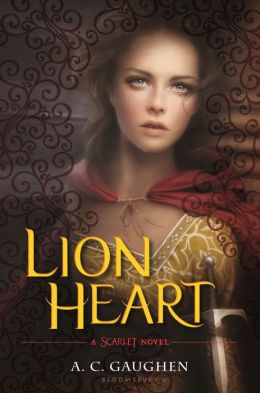
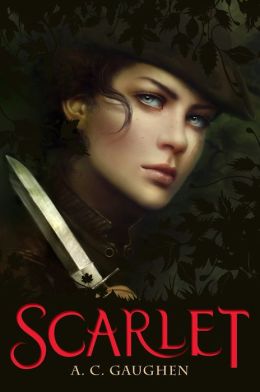
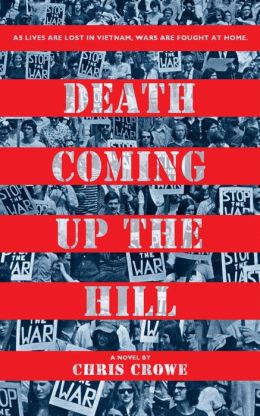
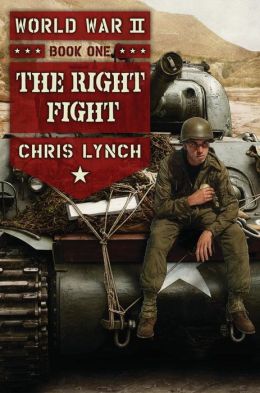
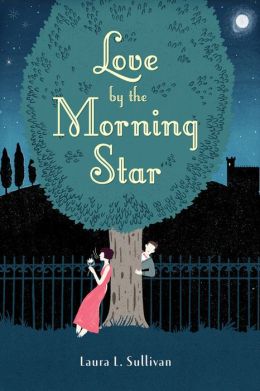

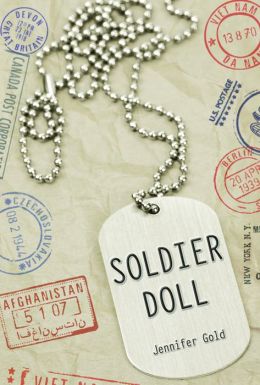
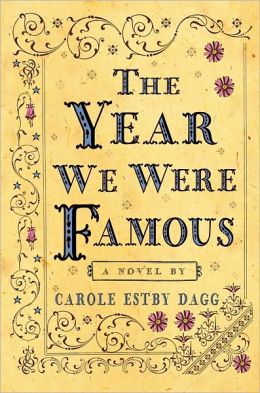
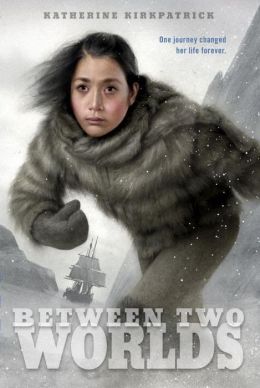


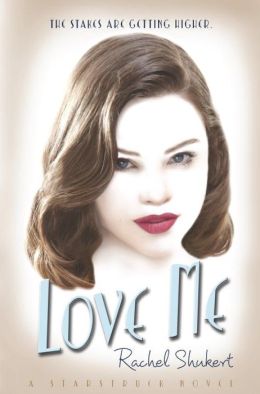
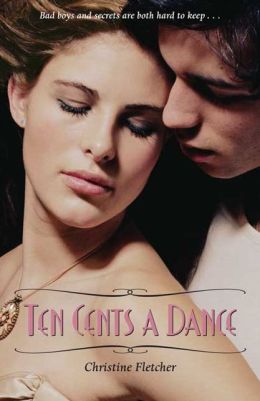

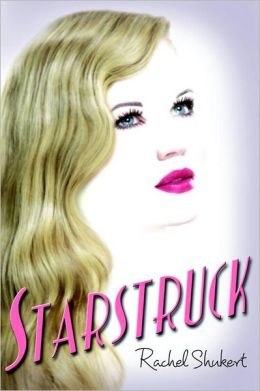
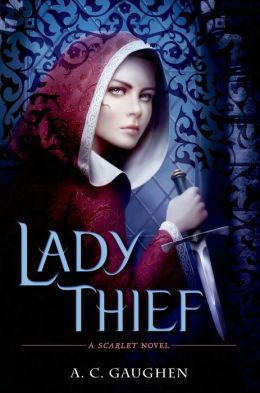
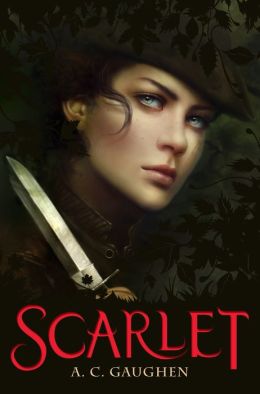
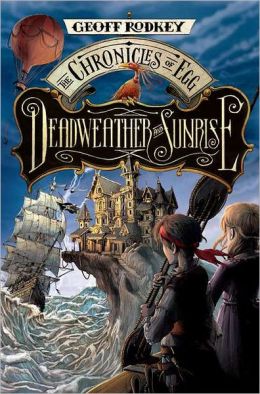
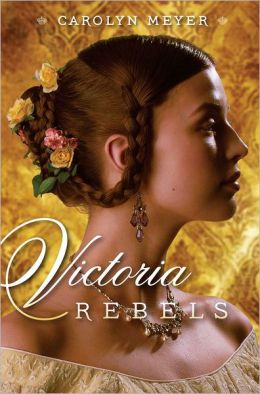

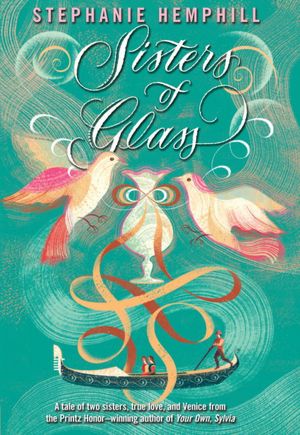

For more reviews visit:
https://www.amazon.com/dp/0743273567/ref=as_li_tf_til?tag=httpblbooksbl-20&camp=0&creative=0&linkCode=as1&creativeASIN=0743273567&adid=1H6Q0CFKR68ESAHPDPMC&
For more reviews visit:
https://www.amazon.com/dp/0743273567/ref=as_li_tf_til?tag=httpblbooksbl-20&camp=0&creative=0&linkCode=as1&creativeASIN=0743273567&adid=1H6Q0CFKR68ESAHPDPMC&